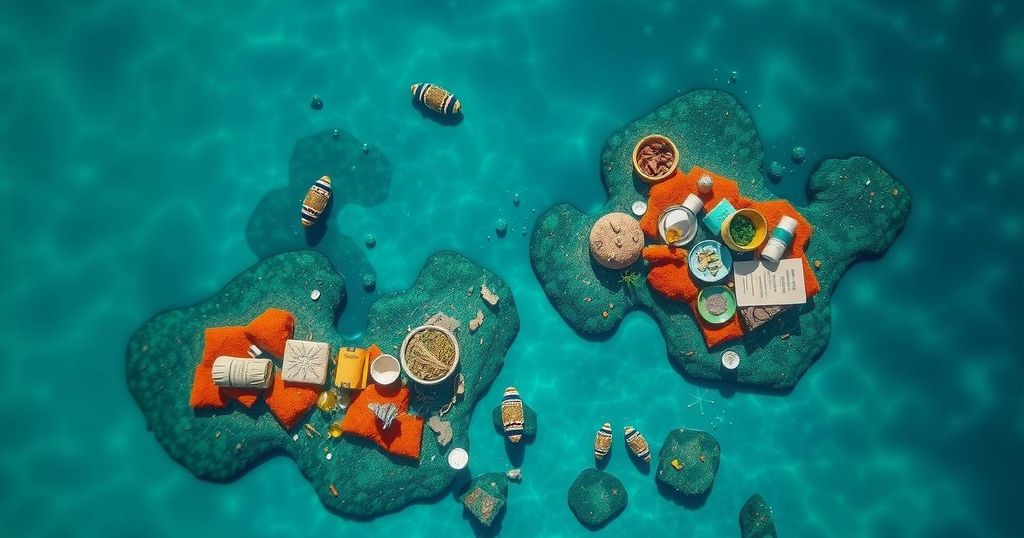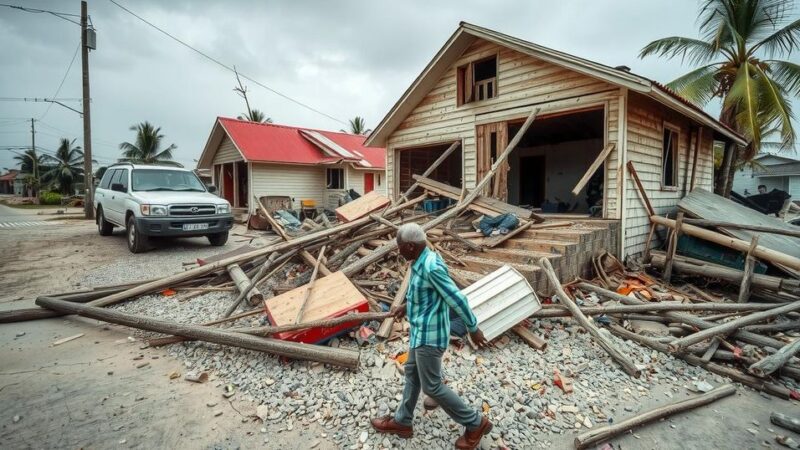Seychelles and Kenya are collaborating on Project 99 to develop a national biological risk assessment tool aimed at identifying potential biological risks in the coming five years. A workshop is currently being held for experts from various fields to enhance preparedness for biological incidents. The project is funded by the European Commission and continues until 2026, focusing on integrated health strategies.
Experts from Seychelles and Kenya are collaborating to develop a national biological risk assessment tool aimed at pinpointing critical areas that require national biological risk assessment scenarios. This initiative involves 30 specialists from fields such as health and agriculture, currently engaged in a five-day workshop held at the Savoy Resort and Spa in Beau Vallon, Seychelles. This effort is part of the European Union’s Centers of Excellence Project 99, which seeks to enhance capacity and preparedness in addressing biological incidents across Eastern and Central African nations.
The participating countries, including Seychelles, Kenya, and Burundi, aim to identify high-risk areas for biological incidents over the next five years. Dr. Jimmy Melanie, Seychelles’ representative, articulated the importance of the training, stating, “This training will help us map our risks, as we can see there is so much development happening that risks can be chemical or radiology or even biological.”
Focusing explicitly on biological risks, the workshop will cover potential illnesses in animals that may pose health threats to humans, as well as assessing toxins from plants and pathogens like viruses and bacteria. Dr. Melanie emphasized the necessity for Seychelles to pinpoint its potential risks, noting illnesses such as bird flu that could affect human populations. He underscored the importance of drawing up effective policies for response and mitigation should any threats arise in the future.
Prior to this workshop in Seychelles, experts participated in a preparatory training session in Nairobi, Kenya, in June of this year, where the national biological risk assessment tool was initially introduced. Project 99 is set to continue until 2026, with expectations that by its conclusion, experts will have established a comprehensive list of anticipated biological risks.
Scott Spence, team leader of Project 99, indicated that by the end of the workshop, participants would have acquired the skills to discern potential biological hazards during the short and medium term. The experts will also develop strategies for worst-case scenarios, such as pandemic risks within a five-year timeframe. Joris Sprokholt, a key expert in the project, noted the significance of the collective information for varied stakeholders, including non-governmental organizations and veterinary experts, advocating for a “one health perspective” that highlights the interdependency of human, animal, plant, and environmental health.
This initiative stems from the pressing need to assess and manage biological risks, especially in light of increasing global development and potential threats to public health. The collaboration between Seychelles and Kenya, as part of the European Union’s Projects, aims to systematically address and anticipate biological hazards that could impact both nations. Given the geographical proximity and shared health concerns, the project is vital for enhancing surveillance and response capabilities within these communities.
In conclusion, the development of a national biological risk assessment tool through Project 99 represents a significant step toward bolstering public health preparedness in Seychelles and Kenya. The ongoing collaboration among experts is set to enhance understanding and management of biological threats in these nations, which is critical for future resilience against potential health crises. By adopting a comprehensive approach that factors in human, animal, and environmental health, the project lays the groundwork for ongoing cooperation and effective response strategies.
Original Source: www.seychellesnewsagency.com







